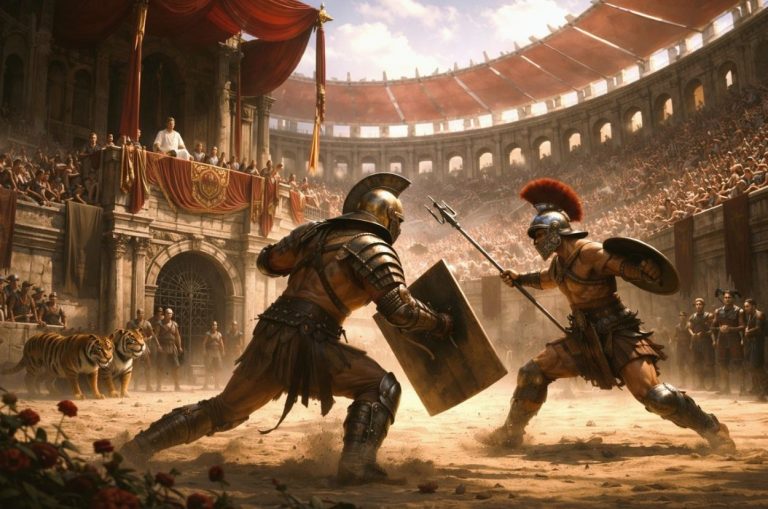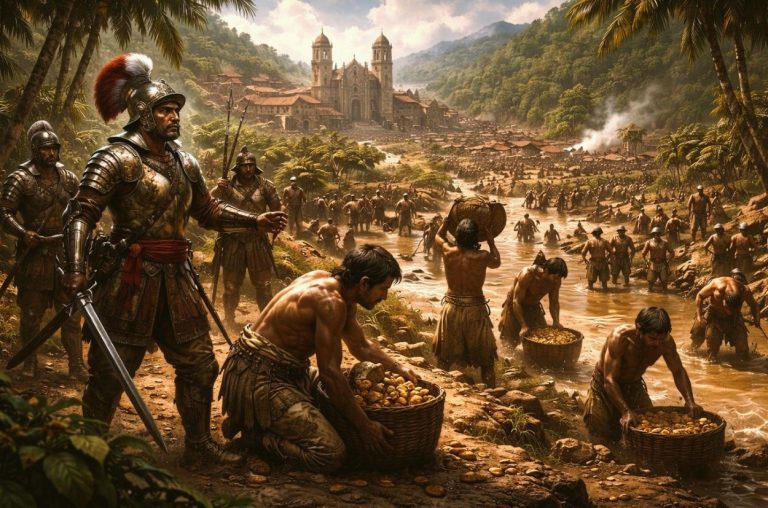
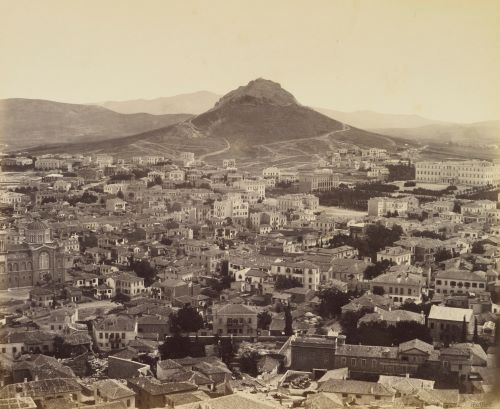
Thucydides used the landmark of Marathon to mark the beginning of the military and political rise of Athens.

By Dr. Georgia Xanthaki-Karamanou
Professor of Ancient Greek Literature
University of Athens
University of the Peloponnese
My purpose in this paper is to define the common motifs in fifth and fourth-century prose-writers, especially Thucydides, the orators, and Plato, that defined the battle of Marathon as a topos, a model for contemporary political decisions.
Topos as a terminus technicus in rhetoric denotes a commonplace or recurrent element. In Rhet. 2.26, 1403a18 Aristotle clarifies that ‘I regard element and topic as identical, since element (or topic) is a head under which several enthymemes are included’.1 In Rhet. 1.2, 1358a12-14, in the discussion of syllogisms, ‘topics’ are said to be applied alike to law, physics, and politics, while in 2.19 the ‘κοινοὶ τόποι’ are treated under the three heads of a) the possible and impossible, b) fact, past, and future, and c) amplification and depreciation.2
The case of Marathon should be included under the second head, the topic of fact ‘whether such and such a thing has been done or not’. Such a topic is for Aristotle mainly used by orators and suggests arguments to prove the probability of some act3 which the pleader wishes to establish against his opponents.4 The battle of Marathon can thus be appropriately used, according to Aristotle, as an example in rhetorical texts and political orations (Rhet. 2, 1396a7-14), adding ‘for all derive their encomiums from the fair deeds…’5 He also expresses the idea ‘how could we make a panegyric of the Athenians, if we did not have at our disposal… the land battle of Marathon?’ For later generations the victory at Marathon provides an indisputable fact for the political supremacy of Athens over all Hellas. Marathon is cited in texts, both in association with the other battles against Persia, called ta Mēdika, and separately and distinctly from them.
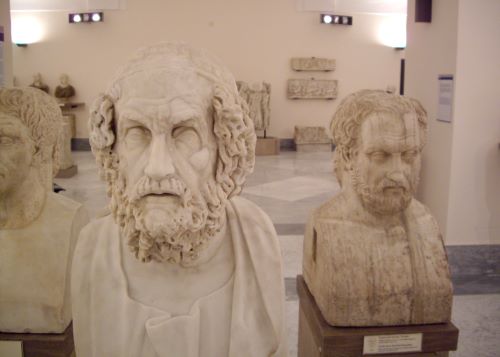
Thucydides refers to Marathon to support his historical narrative. In the so-called ‘Archaeology’ (1.18.1), in the framework of the political development of both Sparta and Athens, the battle of Marathon is vaguely dated ‘a few years after the expulsion of the Greek tyrants by the Spartans’.6 The historian uses the landmark of Marathon to move his narrative from Sparta to Athens7 and mark the beginning of its military and political rise. The Persian Wars provide the turning point after which the political power and imperial development of both Athens and Sparta were gradually accomplished. The Spartans were powerful by land and the Athenians by sea. The historian clearly determines the victories against the Persians as the starting point of the Pentekotaetia (480-30 BC) and the narrative of the Peloponnesian War which is to come.
Thucydides uses the battle not only for structural purposes, but also for the evaluation of historical events. Therefore, in 1.23.1 he stresses the superiority of the Persian Wars over all earlier military operations, obviously also including the war against Troy.8 Nevertheless, he regards them as inferior to the Peloponnesian War.9
It is worth noting that Thucydides refers less to the Persian Wars and specifically to Marathon to suggest Athenian political worth than the fourth-century orators. Nevertheless, for Thucydides Marathon and Salamis especially offer a good paradeigma oikeion to justify the city’s claim to leadership. The passage in 1.73.2 provides the main evidence for Thucydides’ approach to Marathon. The historian presents ta Mēdika as used here by the political persons involved in this narrative, namely the Athenian embassy at Sparta. Nevertheless, despite the initial disclaimer that ‘the repetition of the victories against the Persians is disagreeable’,10 the present passage explicitly illustrates the political ambitions of the Athenians and the justification of their Empire (1.73.1):11 ‘we do not hold what we possess unreasonably (apeikotos)’ and ‘we are worthy of the empire we hold’. The culmination of their superiority and their contribution to the common salvation justifying their claim to rule are powerfully expressed in their closing remarks (1.74.4): ‘but if we had yielded to the Mede, like the others, out of fear for our territory… the enemy’s objectives would have been obtained at leisure’.12 Thucydides will soon be passing at chapter 89 to the Pentekontaetia and the aftermath of the Persian Wars, clearly demonstrating the significance of the Athenian victory.13
The kernel of the Athenians’ speech in this first convention of the Peloponnesian allies at Sparta in 432 is to remind the Spartans and their allies of the power of the Athenian empire, which is not opposed to its wish for peace. Sparta will have to fight against such a city if it takes the wrong decisions.14
Marathon is used in Thucydides to stress the fact that the Athenians ‘fought in the front line alone’, ‘we, first and alone, dared to fight the Persians at Marathon’,15 without any help from the Spartans.16 The absence of the Plataeans in this passage has been much discussed. The silence here is underscored by Thucydides’ own narrative in 3.55.3 (the speech of the Plataeans against the Thebans) and in 3.63.2 (the speech of the Thebans), where the closeness between Athens and Plataea is clear, and the ‘isopolity’, the full rights of Athenian citizenship granted to Plataeans, is explicitly recognized.17 Προκινδυνεῦσαι (‘run the risk before others’), a synonym of προμάχεσθαι, μόνοι προκινδυνεῦσαι τῷ βαρβάρῳ (‘the Athenians alone braved the barbarian for Hellas’), denotes the Athenian claim that the victory at Marathon explicitly points to the bravery and the military power of the city.
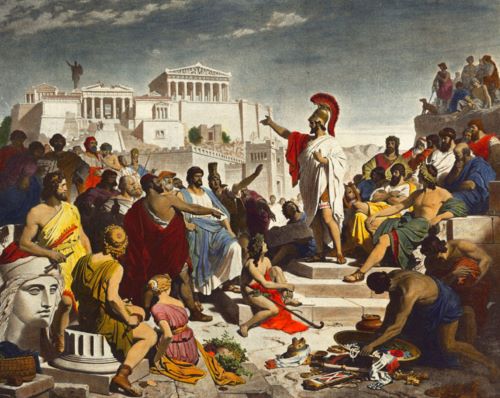
In Thucydides’ introduction to Pericles’ Funeral speech (2.34.1) it is said that the dead receive a public tomb (δημόσιονσῆμα) at Kerameikos according to the hereditary law, the custom of their fathers (πάτριοςνόμος), except the dead at Marathon, since their bravery (ἀρετή) was thought to be exceptional.18 Jacoby, however, suggested that ‘the burial of the Marathonomachoi on the battlefield is not an exception, but the rule’ and the special honour conferred on them consisted ‘in the cult established at their grave and performed annually through the polemarch who in this battle had still been commander-in-chief of the army’.19 Nevertheless, Marathon seems to be used here of the dead in the Persian Wars in general, since the fallen at Salamis and Plataea were also buried on the battlefield.20 Interestingly, the emphasis put on the bravery of the fallen warriors, their military and political excellence, provides the main criterion for Marathon as an everlasting symbol from the fifth century onwards.
In fourth-century prose the development of the topos finds its fullest expression in funeral speeches. The praise of the Athenians’ moral and political qualities reaches its climax. The heroization of the ancestors was institutionalized with the era’s funeral orations.21 This heroizing is especially marked in the extensive treatment of Marathon in Lysias’ Funeral oration 21-26 (esp. 23), which includes the main elements of the traditional topos: the Athenian warriors’ ἀρετή is associated with glorious death and immortal fame.22 These brave men, says Lysias, did not fear the multitude of their enemy but, confident in their own ability, did not wait for any allies to help them. On the contrary, they marched few against many (24), responding to the danger so quickly that the same messenger announced to the rest of the Hellenes both the arrival of the barbarians and the victory of the Athenians (26). With respect for their own laws they made the others free and put up a trophy on behalf of Hellas. It is not surprising therefore that their merit is praised by all men even a century after their deeds, Lysias concludes.23 Lysias implies that the absence of the Spartans from the Battle of Marathon helps the Athenian claim to rule. Athens is depicted as a united community fighting for the freedom of all.
Isocrates in Panegyricus 86-87 seems to follow Lysias in depicting Athenian supremacy and ἀρετή.24 The victory at Marathon was not caused by fortune (τύχη) but by the warriors’ courage (ἀρετή).25 The motifs are common: the Athenians did not wait for allies but they made the common war their private one. A few against many tens of thousands,26 they fought victoriously against an enemy who despised the whole of Hellas, and they set up a trophy of victory. Interestingly, Isocrates, contrary to other sources, mentions the help of the Lacedaemonians, who in three days and nights covered twelve hundred stades in marching order to share the dangers with the Athenians. This was however as far as revisionism could go, but the orator admits that the latter joined battle before the arrival of their allies.27 The explicit reference to the Lacedaemonians aims at proving the rivalry (ἅμιλλα) between them and the Athenians for common freedom and safety,28 but also for military and political power in Hellas. However, Isocrates strangely does not mention the Spartans’ praise for the Athenians and their actions after they had seen the Medes’ dead.29 And in a narrative which is interested only in Athens and Sparta he also omits the presence of the Plataeans.
In Isocrates’ treatment of the conventions of panegyric oratory we can clearly see the way in which the anticipated audience shapes the narrative. This speech, aimed at both a Spartan and an Athenian audience, adopts a different perspective on Athenian history from that found in the inwardly focused epitaphios logos. This is also visible later in the Panegyricus (164-66): Isocrates uses Marathon in the framework of his argument to convince the Athenians to gather troops in Lydia and Ionia in order to prevent the Persian King from organizing his forces. Athens withdrew its support30 from the Ionian Revolt of 500-494 BC, some time before it was finally suppressed. To correct this serious political mistake the Athenians, according to Isocrates, faced courageously the greatest risks at Marathon.31 Accordingly, Isocrates suggests that it is better for the Athenians to fight against the King of Persia than to dispute for the empire and leadership.32 In the Panegyricus Marathon provides a spur to the Hellenes to face the Persian danger united, especially after the humiliating Peace of Antalkidas, and to revitalize the city’s power. Therefore, the leadership, claims Isocrates in 380 BC, belongs to Athens in view of its victories in the Persian Wars and its contribution to the freedom of Hellas.33
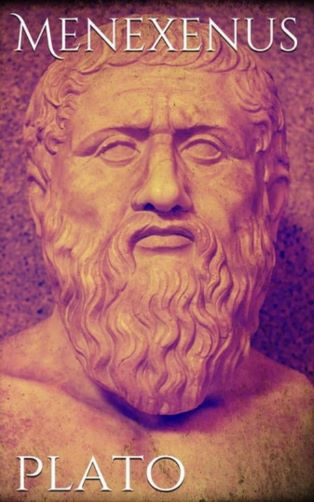
Plato in the Menexenus (240c-e), following the typical construction and motifs of funeral orations, masterfully depicts the symbol of Marathon based on the Athenians’ ἀρετή. Like Isocrates, Plato in Socrates’ fictitious funeral speech admits that only the Spartans, despite their late arrival on the day after the battle,34 helped the Athenians. According to this passage of the Menexenus,
… the Marathonomachoi, chastised all Asia’s insolent pride and were the first to raise trophies of victory over the barbarians; they taught the others to know that the Persian power was not invincible, since there is no multitude of men or money but courage conquers it…. The defenders of Marathon were not merely the Athenians’ physical ancestors but also the founders of their freedom and of the freedom of Hellas as a whole. The example of their exploit fired the Hellenes with courage to risk the later battles in the cause of salvation, learning their lessons from the men of Marathon.35
Socrates’ funeral speech focuses on the punishment of Asiatic arrogance and the superiority of courage over the multitude of warriors. He explicitly stressed that Athens proved that the Persians could be defeated, providing an example for his contemporaries to follow. Nevertheless, the reference by both Isocrates and Plato to the presence of Sparta at Marathon seems to reflect the concept of Panhellenism which characterizes their era. On the other hand, the silence of Lysias, Isocrates, and Plato on the contribution of the Plataeans to the victory is likely due to these authors’ wish not to alter the praise of the Athenians.36
The flexibility of Marathon as a topos is not exhausted by its role in the funeral orations and deliberative speeches. It also becomes a useful element in forensic speeches with a pronounced political dimension. In funeral orations and deliberative speeches the recognition of the Athenians’ excellence and courage at Marathon, which decisively contributed to their political power during the Pentekontaetia, is emphatically described. In forensic speeches with political overtones, though the elements constituting the topos of the praise of Athens are similar, the orator’s purpose is exclusively one: to attack his opponent and reveal his low moral status.
Marathon unsurprisingly figures in Demosthenes’ heroic vision of the Athenian tradition. It becomes part of the presentation of the glorious heritage of Athens. The orator refers to Marathon and the other victories against the Persians, particularly Salamis37 and Artemision, especially in his speeches against Aeschines. In his masterful On the crown (208) one of the central elements of the topos, namely that Athens alone defended Hellas at Marathon securing its freedom and safety, is explicitly expressed as in Thucydides by προκινδυνεύσαντες (‘who fought in the front’)38. The word aptly denotes the Athenian supremacy in courage. The invocation of Marathon, Plataea, Salamis, and Artemision functions in the framework of Demosthenes’ oath made to answer convincingly Aeschines’ outburst against him for the lives wasted at Chaeronea. As with the funeral oration, we have a heroization of the recent dead by association with the great warriors of Marathon. Demosthenes claims that both in the Persian Wars and at Chaeronea the fallen on the battlefield proved to be brave men (ἀγαθοὶἄνδρες), since they risked their lives for the freedom and the sake of the community. A fundamental link exists between the Marathonomachoi and those who fought at Chaeronea, since they risked death in pursuit of goals more important than life.39
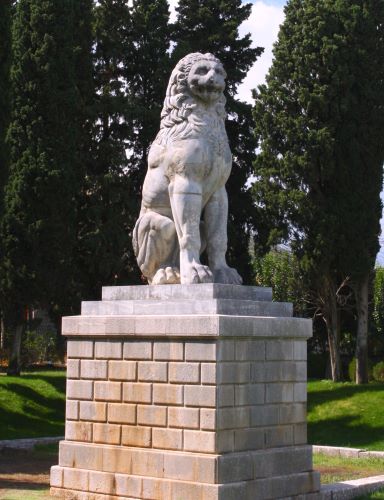
Accordingly, the reference to Marathon and to the other battles against the Persians is used to support decisively the central argument of this speech that the Athenians were not wrong to take the risk at Chaeronea for the freedom and the safety of all [Hellenes] and were alike worthy of the same honour as the fallen at Marathon. For Demosthenes, the victorious Persian Wars are linked with contemporary military events of unfortunate outcome, but equally marked by bravery. The unsuccessful outcome at Chaeronea was (as Demosthenes repeatedly emphasizes) due to fortune, but the duty of brave men was accomplished. Again, as with the epitaphios logos, the continuity of the Athenians’ excellence is underscored by the orator,40 which contributes a moral dimension to the military action.
The glory of the collective dead is also transmitted on occasion to their leaders. Such brave and noble men (καλοὶκἀγαθοί) were chosen by the Athenians to lead them, as Demosthenes attests in his speech Against Aristocrates (196, 198= On organization 21). Miltiades and Themistocles are the models for leaders of sobriety and merit whose achievements were not on a level with the fourth-century commanders and their services are proved to be far greater than those of contemporary generals. Nevertheless, the honour of the achievements in the Persian Wars does not belong to the leaders but to the city as a whole, since, as Demosthenes says, ‘no one could speak of Miltiades’ battle at Marathon, but of the Athenians’ battle’ (198).
Marathon can also serve as a weapon in prosecution speeches. In a direct and very powerful attack on his opponent, Demosthenes in his speech On the embassy (311-13), when asking the Athenians to cast a just and righteous vote against Aeschines, compares the glorious dead at Marathon and Salamis with Aeschines’ disgraceful behaviour. He accuses him of having contradicted his own utterances on these victories as soon as he set foot in Macedonia; he forbade the Athenians to offer help to their friends, recalling the example of their forefathers, because of his bribes from Macedonia. The typical element of the topos, especially in funeral orations, namely that praise for remarkable achievements belongs to those who have gloriously died, is repeated by Demosthenes to serve the purposes of his attack against Aeschines. Aeschines, in his turn (Ctes. 181), compares Demosthenes negatively with Miltiades and Themistocles and says, ‘does it seem to you that Themistocles was the better man or Demosthenes, who the other day deserted his post? Miltiades, who won the Battle of Marathon, or this man (ἢοὗτος)?’, namely Demosthenes.
Further on (Ctes. 257-59) Aeschines, seeking here to counteract Demosthenes’ appeal to Marathon as the model for Chaeronea, urges the Athenians not to hold the words of Demosthenes as more weighty than their oaths and the laws, saying ‘the dead at Marathon and at Plataea will groan aloud, if the man who has negotiated with the barbarians against the Greeks, the man who has received a bribe and still has the money, now receives a crown’.
Aeschines maintains a directly laudatory tone for the victories against the Persians in his speech On the embassy (De falsa legatione 75-76), which recalls funeral orations. He urges the Athenians: ‘we must imitate the wisdom of our forefathers, and beware of their mistakes and their unreasonable jealousies. I urge that we should emulate the battles of Marathon and Artemision’. Interestingly, Aeschines mentions distinctly the Athenian victories at Marathon and Artemision to put the emphasis on the excellence of the city. His appeal to ta Mēdika helps to retain the audience’s eunoia.
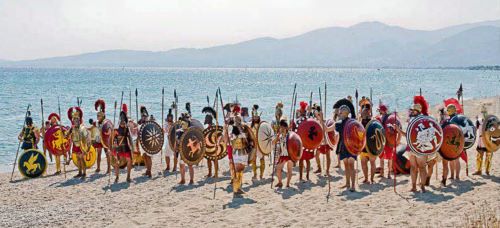
Marathon again serves as the basis of attack in Lycurgus (Leocr. 108-10), where some of the fundamental elements of the topos are included. Lycurgus deals with the symbol of Marathon much more skilfully than Aeschines. The personal attack against Leocrates is masterfully located in the framework of the powerful rhetorical opposition. The orator, quoting Simonides’ epigram (Ἑλλήνων προμαχοῦντες … δύναμιν), underlines that the Athenians’ courage at Marathon was proved to be superior to the multitude of the Persian forces. Their victory provides explicit evidence of their excellence and has left everlasting glory. Marathon here clearly receives the dimension of a symbol. It is used to oppose the glorious historical event to the disgrace that the traitor Leocrates caused to the city when he abandoned Athens after the battle of Chaeronea. Lycurgus says of Leocrates (110): ‘if the judges save his life, they will give a bad example to the citizens, since they will replace the old glory by shamelessness, treachery, and cowardice (ἀναίδεια, προδοσία καὶ δειλία)’.
We have seen that the Marathon victory is a recurrent topos of Athenian political prestige exemplified in fifth- and fourth-century prose-writers. The victory of Marathon is especially the landmark for Athenian military and political distinction. The main motifs constituting the topos are: a) Athens alone, without allies, defended Hellas against the Persians (Thuc. 1.73.2; Dem. On the crown 208; Isoc. Paneg. 86), and saved the country from the enemy (Plat. Mx. 240c-e, Laws 4.707c; Isoc. Paneg. 91, Philippus 147); b) the Athenians fought with remarkably fewer forces against the numerous Persian troops, chastised Asia’s insolent pride, and set up a trophy of victory on behalf of Hellas (Lys. Epit. 21-28; Isoc. Paneg. 86, 164-66; Plat. Mx. 240d-241b); c) accordingly, the warriors’ postmortem distinction at Marathon (Thuc. 2.34.1) and the praise of their virtue are also basic elements of the topos; d) the glory of the victory at Marathon and in the Persian Wars in general is attributed not merely to the leaders but to the city and the Athenians as a whole (Dem. Against Aristocrates 198, On organization 21); e) the Athenians chosen to lead them were brave and noble personalities, men of sobriety and wisdom (Dem. Against Aristocrates 197; Aeschin. On the embassy 75-76). We have seen that the elements of the topos are deployed in a flexible way to meet the requirements of different contexts. At its most obvious the topos serves the glorification of the war dead by association with the great deeds of the ancestors. But it can constitute a major argument for the decisive contribution of Athens to civic freedom and its consequent claim to the leadership of Hellas. It can serve as the justification for policy decisions; f) and in contrast, in certain forensic speeches with political dimensions (Demosthenes, Aeschines, Lycurgus) the comparison with the glorious fighters of Marathon is used to attack the opponent powerfully in court and shed light on his vicious intentions.
Accordingly, all existing sources of the fifth and fourth centuries BC on the supremacy of Athens in the victory of Marathon justify the claim of the city to keep the leadership and its prestige, to be the only power able to protect Hellas, to guarantee the principle of equality before the law (ἰσονομία), and to continue to offer a model of political value.
See endnotes and bibliography at source.
Contribution (213-221) from Marathon – 2,500 Years, edited by Christopher Carey and Michael Edwards (University of London Press, 12.02.2013), Institute of Classical Studies, School of Advanced Study, University of London, published by OAPEN under the terms of a Creative Commons Attribution-NonCommercial-NoDerivs 2.0 Generic license.
